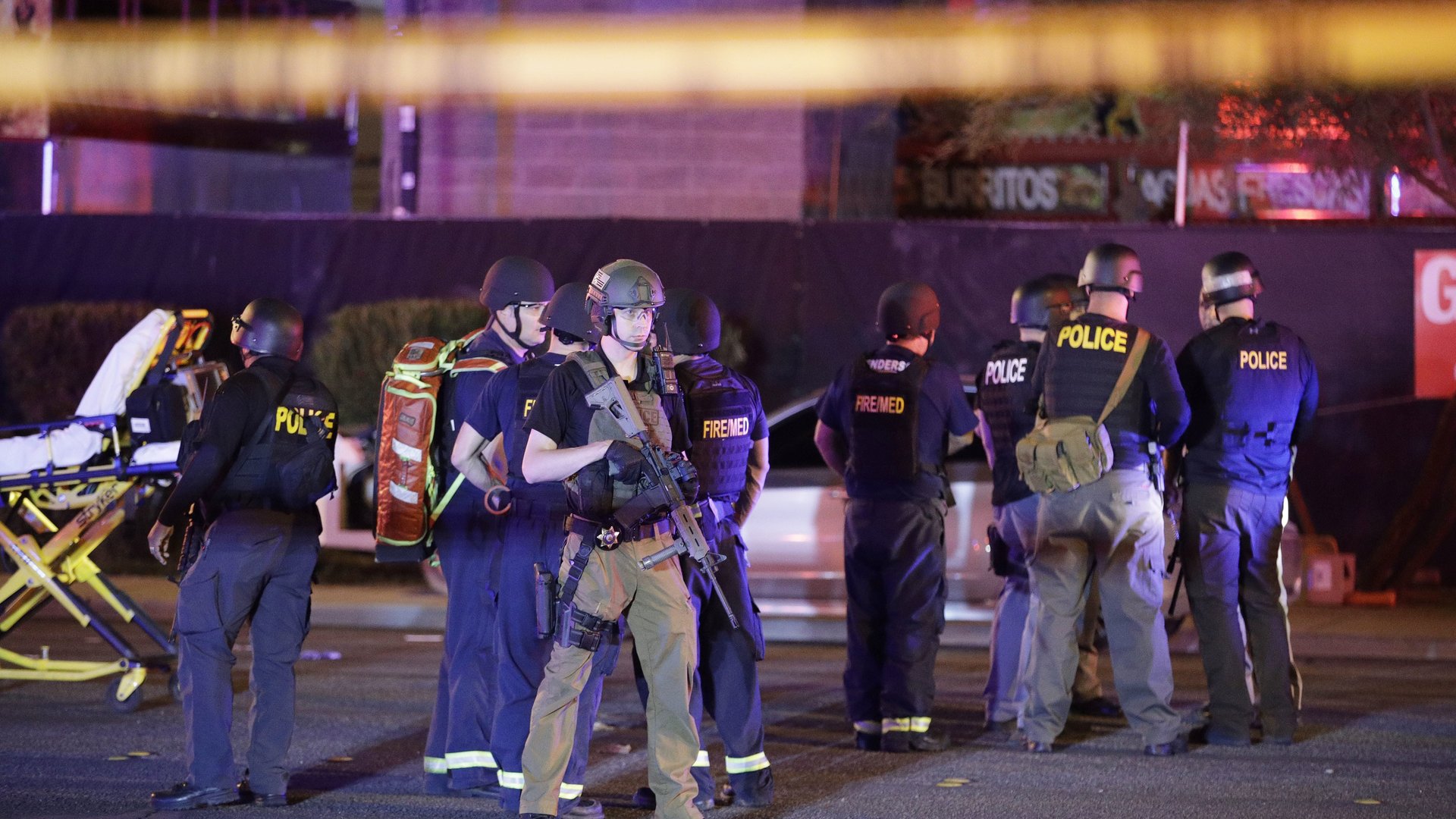Posting videos of a breaking crime online can have dangerous consequences
In responding to the mass shooting in Las Vegas, police made two public pleas that likely wouldn’t have arisen 10 years ago:


In responding to the mass shooting in Las Vegas, police made two public pleas that likely wouldn’t have arisen 10 years ago:
1. Witnesses were asked not to post videos of police officers on the scene.
2. They were also asked to hand over any cellphone video that might be helpful to the authorities.
The two requests highlight how the changes in citizen technology “cut both ways” for law-enforcement agencies, says David Klinger, a criminology professor at the University of Missouri-St Louis who is a former police officer.
How it helps and how it hurts
The plethora of video collected “does create a more reliable record of at least a slice of things,” Klinger says, which can be better than depending on eyewitness testimony, which has long been known to be unreliable. Having the attack and police movements documented by third parties can also help investigators get a better understanding of how to react in the future, says Jerry Ratcliffe, director of the center for security and crime science at Temple University.
However, those good effects come with considerable downsides if the evidence is posted quickly online. Putting up footage of officers’ rapid response in real time can put them in danger. “If I were a chief of police or sheriff, I wouldn’t want people to know where my guys and gals are,” says Klinger. Real-time tape of police positions can expose them to danger from the perpetrator, from gunmen acting alongside them, or even a shooter inspired to jump into action as a copycat.
“If the suspects are watching for information about police tactics […] that can potentially put officers’ lives at risk,” Ratcliffe, a former officer with London’s Metropolitan Police, writes in an email to Quartz.
Video doesn’t tell the whole story
The thin slivers of information provided by online video do little to help the public. ”It generally sows alarm and panic without being informative,” writes Ratcliffe. “The people that need to know are already taking cover, so they are aware of the situation.”
What’s more, unverified video can create an atmosphere of rumor and misinformation. It can lead “people to demand that cops chase down this lead more than that lead, so the public and politicians insert themselves, put pressure on the police department, which can perhaps slow things down by drawing away resources,” Klinger says.
The power of rumors to affect police work seems to have been in effect already in Las Vegas, with Sheriff Joe Lombardo already having to debunk conjecture that there were multiple shooters and that explosives had been going off.
Police insist that requests not to post video of offices in action stem not from a desire to hold information back from the public, but so they can provide the public with a full account of events once they’ve gathered and analyzed evidence.
Another factor to bear in mind: Police in the UK and elsewhere advise you to get away from danger rather than expose yourself to risk by taking video with your phone.